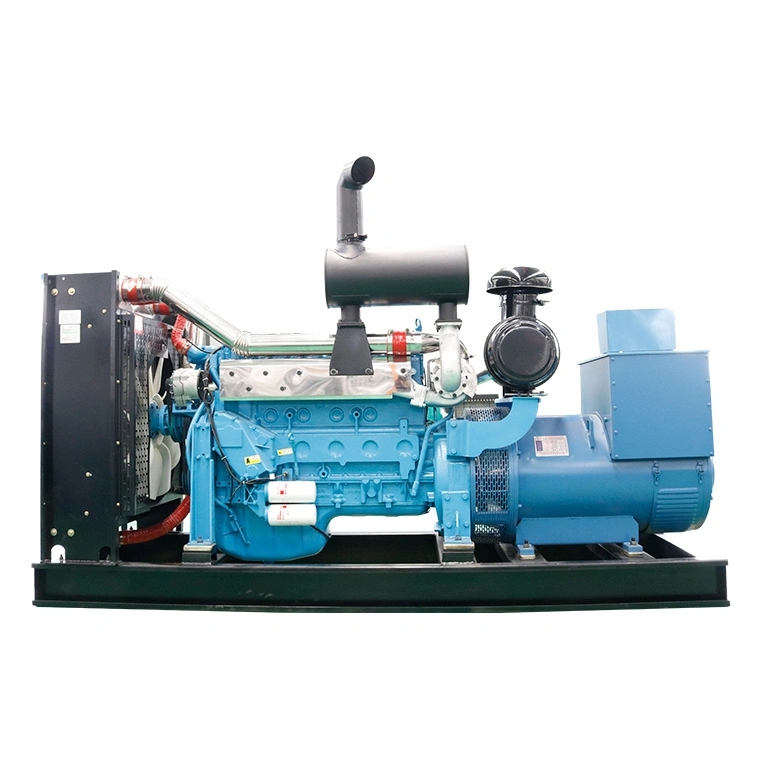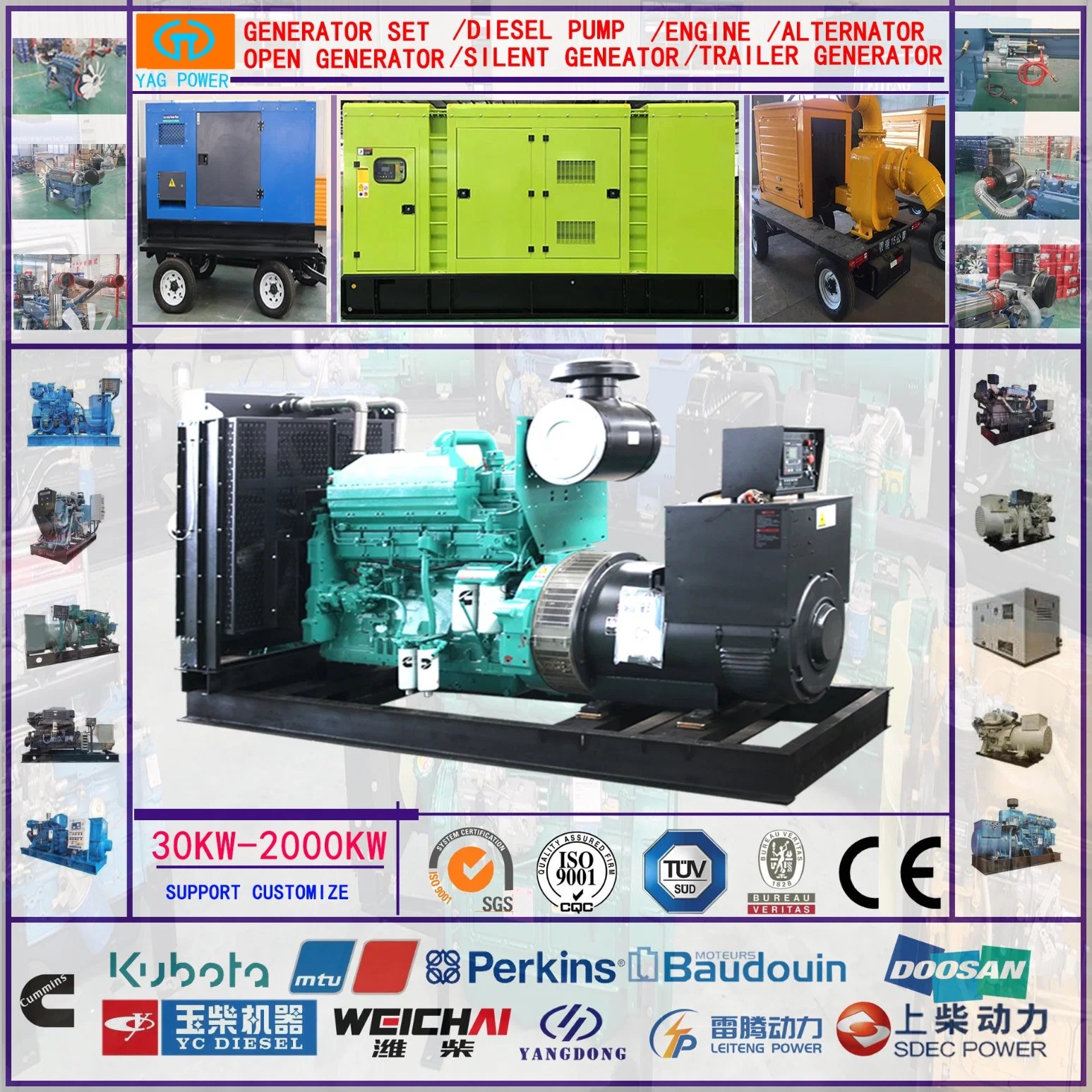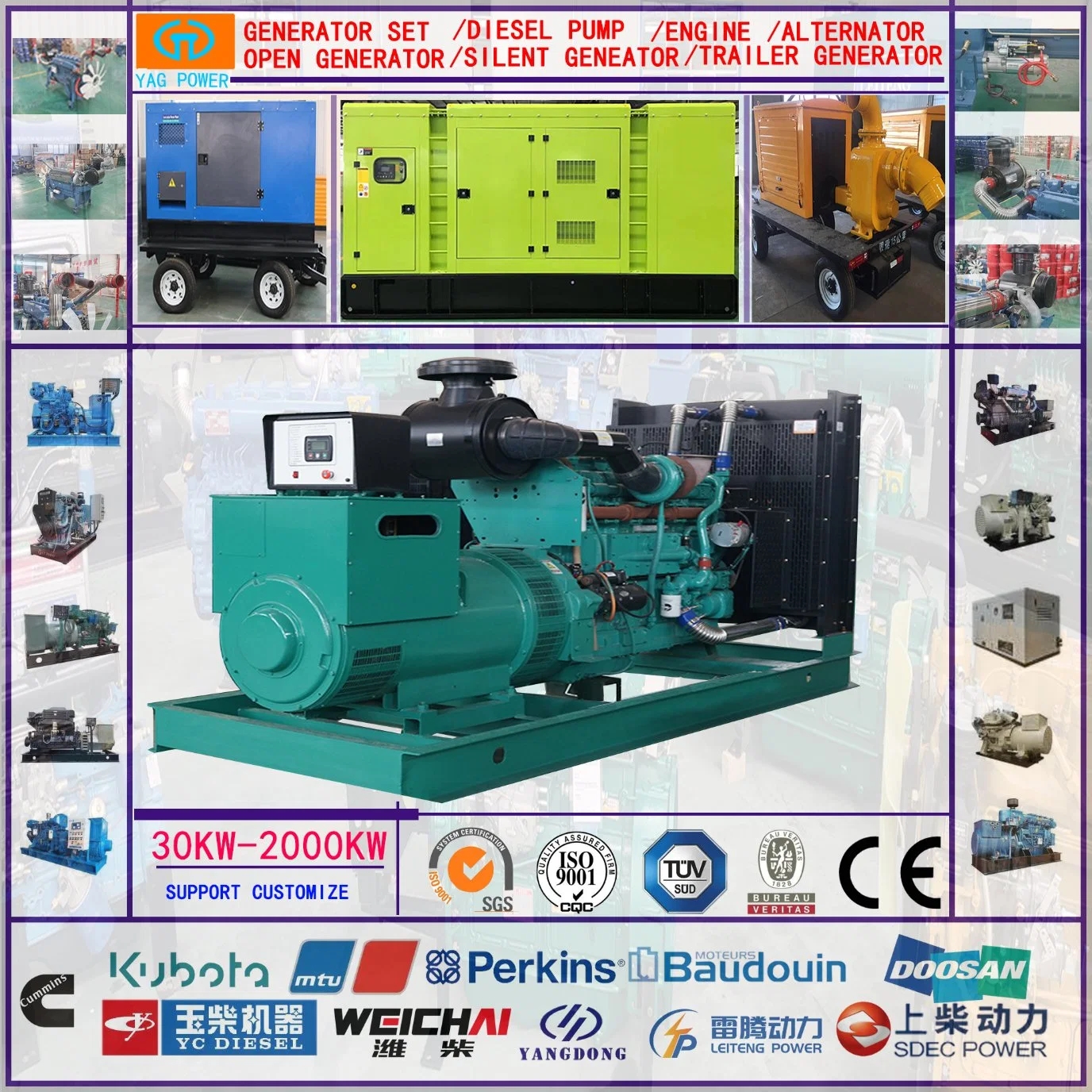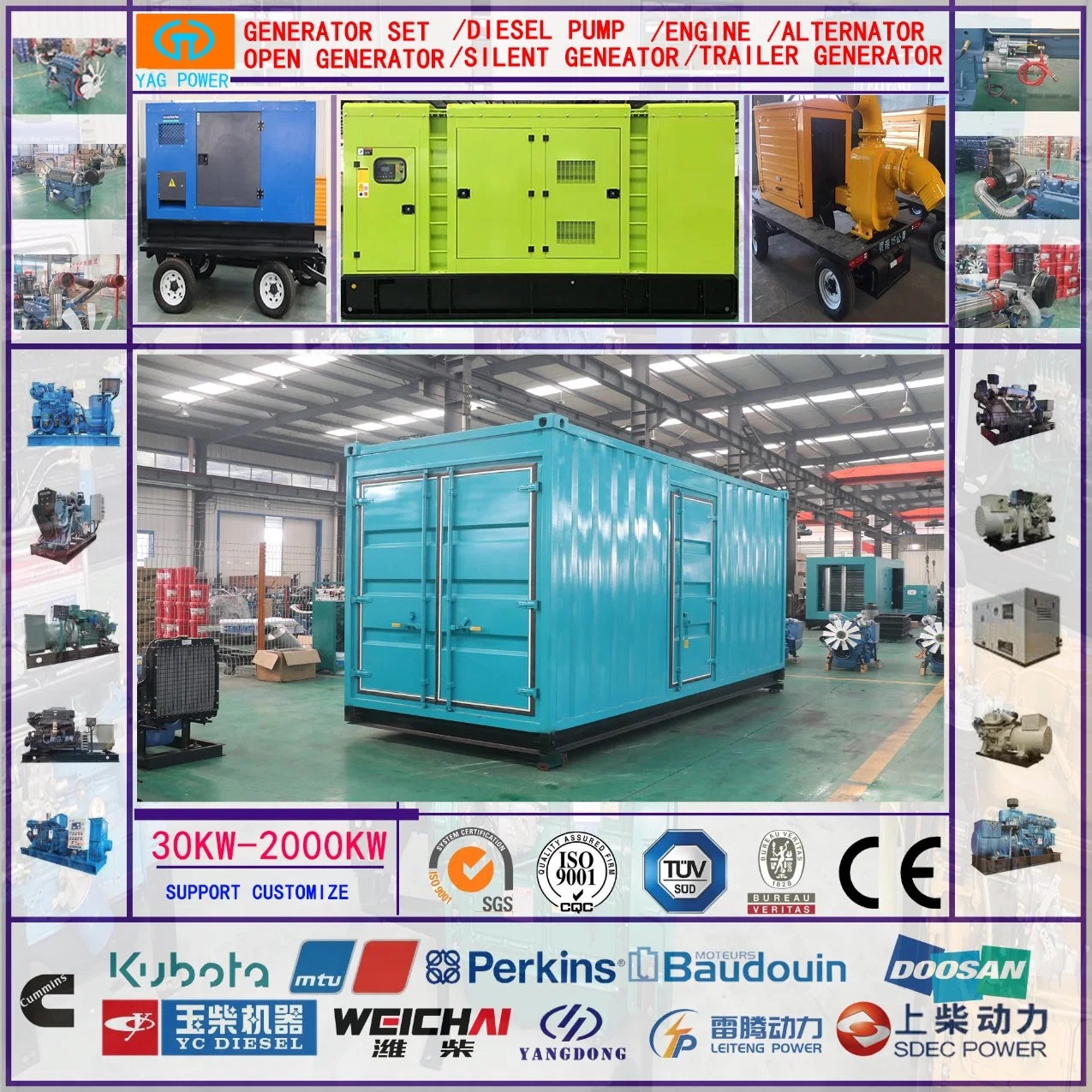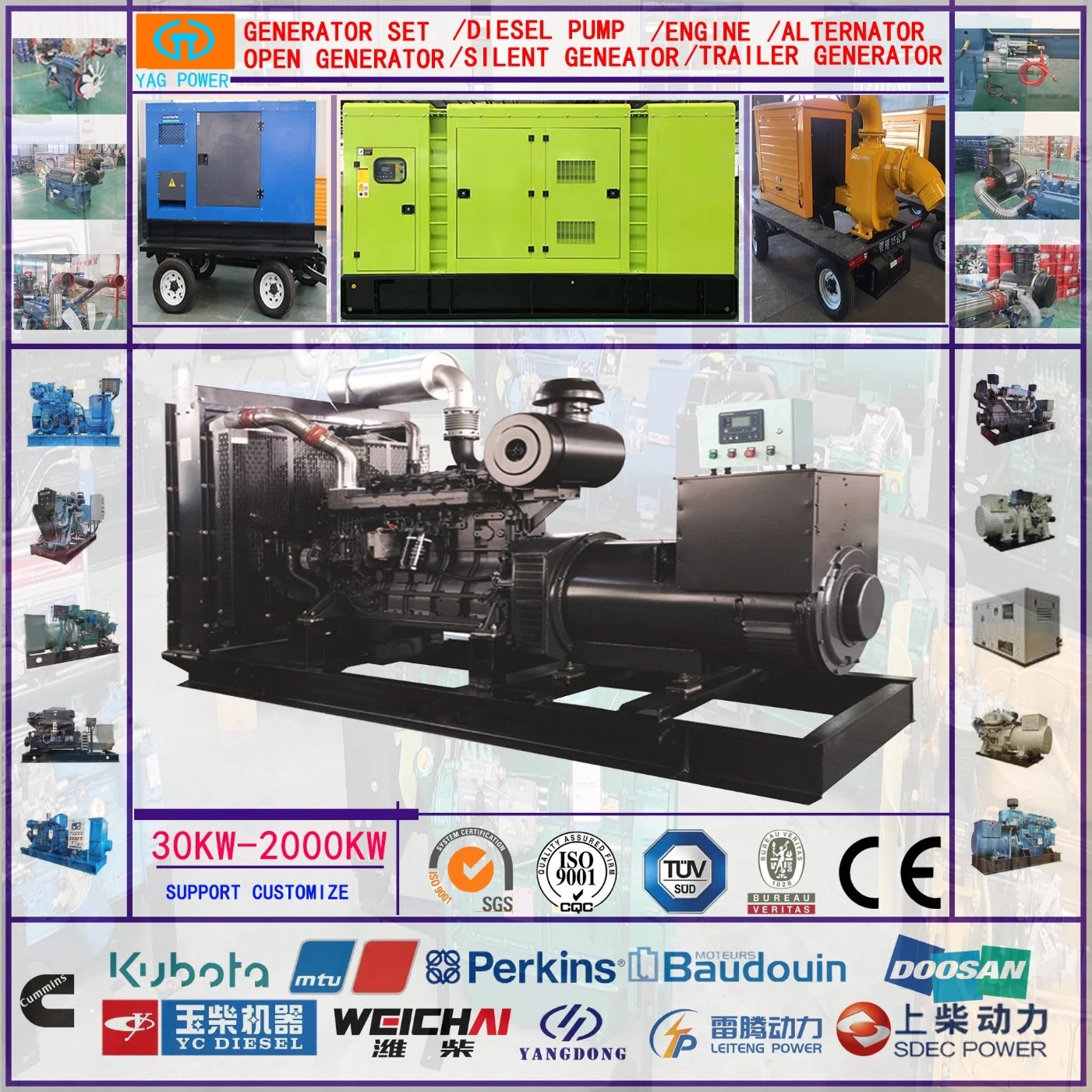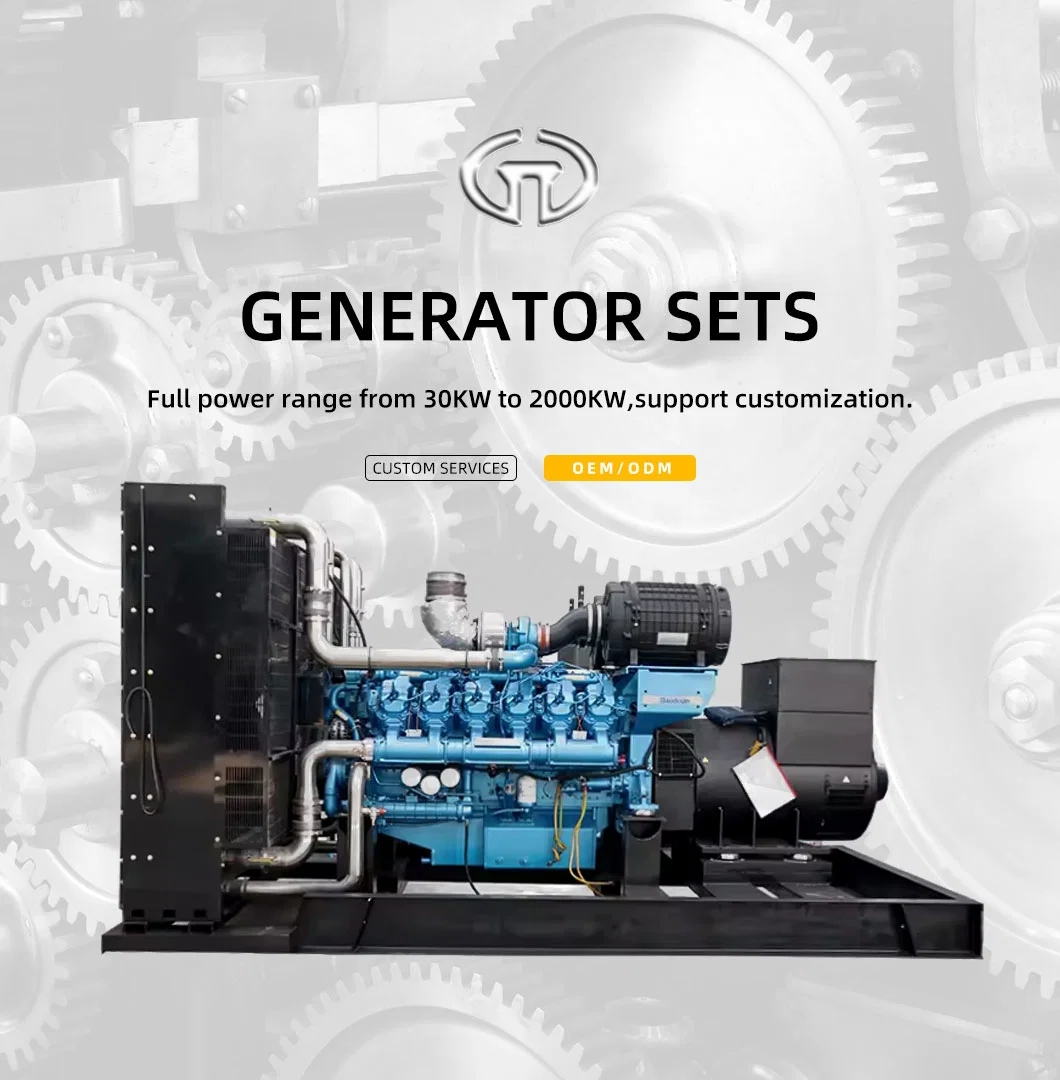Table of Contents
ToggleWhen it comes to power generation, especially in industrial and commercial settings, a 400kW diesel generator stands out as a reliable option. But what exactly is it, and why should you consider one? Let’s dive into the nitty-gritty of these powerful machines and explore everything you need to know.
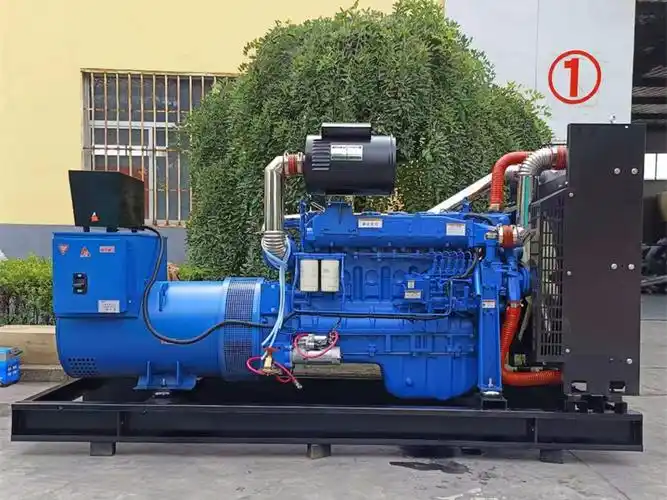
What is a 400kW Diesel Generator?
A 400kW diesel generator is a robust power generation unit designed to produce 400 kilowatts of electrical power. These generators are typically used as backup power sources or for primary power in locations where electricity supply is unreliable. They run on diesel fuel, which is known for its efficiency and energy density.
Key Features of 400kW Diesel Generators
These generators come packed with features that make them suitable for various applications. Some key features include:
- High Power Output: Capable of powering multiple heavy-duty machines simultaneously, a 400kW generator can handle the demands of large operations without breaking a sweat.
- Durable Construction: Built to withstand harsh environments, making them ideal for industrial use. They often feature weatherproof enclosures and robust components that can endure extreme conditions.
- Automatic Start/Stop: Many models come with automatic controls that kick in during power outages. This means you don’t have to worry about manually starting the generator when the lights go out.
- Fuel Efficiency: Designed to maximize fuel usage, reducing operational costs. Diesel engines are inherently more efficient than gasoline engines, allowing for longer run times on less fuel.
How Does a Diesel Generator Work?
At its core, a diesel generator converts mechanical energy from a diesel engine into electrical energy. The engine burns diesel fuel, creating combustion that drives pistons. These pistons turn a crankshaft, which is connected to an alternator that generates electricity. It’s a straightforward yet effective process that has stood the test of time.
Applications of 400kW Diesel Generators
So, where can you find these powerful machines in action? Let’s break it down.
Industrial Uses
In industries like construction, manufacturing, and mining, a 400kW diesel generator is often the backbone of operations. It provides the necessary power to run heavy machinery, tools, and lighting, ensuring that work can continue uninterrupted, even in remote locations. For example, in a construction site, where power tools and equipment are essential, having a reliable generator can mean the difference between meeting deadlines and falling behind.
Commercial Uses
Retail businesses, hospitals, and data centers also rely on these generators. For instance, a hospital needs a constant power supply to keep life-saving equipment running. A 400kW generator can provide that peace of mind, ensuring that operations continue smoothly during outages. Similarly, data centers, which house critical servers and IT infrastructure, require uninterrupted power to prevent data loss and maintain service availability.
Advantages of Using a Diesel Generator
Why choose a diesel generator over other types? Here are some compelling reasons.
Fuel Efficiency
Diesel engines are known for their fuel efficiency. They can run longer on less fuel compared to gasoline engines, making them a cost-effective choice for large power needs. This efficiency translates to lower operational costs, which is a significant advantage for businesses. Imagine being able to power your entire operation for hours on a single tank of fuel—this is the kind of efficiency that diesel generators offer.
Durability and Longevity
Diesel generators are built to last. With proper maintenance, they can run for thousands of hours without significant issues. This durability means fewer replacements and repairs, saving you money in the long run. Think of it like investing in a sturdy pair of boots; while they may cost more upfront, their longevity and reliability pay off over time.
Choosing the Right 400kW Diesel Generator
Not all generators are created equal. Here’s what you should consider when selecting one.
Factors to Consider
- Power Requirements: Assess your power needs carefully. A 400kW generator is powerful, but you need to ensure it meets your specific requirements. Consider the total wattage of all the equipment you plan to run simultaneously.
- Fuel Availability: Ensure that diesel fuel is readily available in your area. In some remote locations, fuel supply can be a challenge, so it’s essential to factor this into your decision.
- Noise Levels: Some generators can be quite loud. If noise is a concern, look for models designed for quieter operation. Many manufacturers offer soundproof enclosures that can significantly reduce noise levels.
Top Brands in the Market
When it comes to reliability, certain brands have built a reputation for quality. Some of the top brands include:
- Caterpillar: Known for their robust construction and reliability, Caterpillar generators are a popular choice in various industries.
- Cummins: Offers a range of models with excellent fuel efficiency and advanced technology features.
- Perkins: Renowned for their durable engines and ease of maintenance, Perkins generators are often favored for their longevity.
Maintenance Tips for Diesel Generators
To keep your generator running smoothly, regular maintenance is key.
Regular Checks and Servicing
Schedule routine inspections to check oil levels, coolant, and fuel filters. Regular servicing can prevent minor issues from becoming major problems. It’s like taking your car in for regular oil changes; neglecting maintenance can lead to costly repairs down the line.
Troubleshooting Common Issues
If your generator isn’t starting or is making unusual noises, it’s essential to troubleshoot. Common issues include fuel blockages, battery problems, or electrical faults. Always consult the user manual or a professional if you’re unsure. Remember, a little proactive maintenance can save you a lot of headaches later on.
Environmental Considerations
With growing concerns about the environment, it’s essential to consider the ecological impact of diesel generators.
Emissions and Regulations
Diesel generators emit pollutants, which can be harmful to the environment. Many regions have strict regulations regarding emissions, so it’s crucial to ensure your generator complies with local laws. This might involve investing in models equipped with advanced filtration systems or catalytic converters to reduce emissions.
Eco-Friendly Alternatives
If you’re looking for greener options, consider hybrid generators or those that run on biodiesel. These alternatives can significantly reduce your carbon footprint while still providing reliable power. It’s like choosing to ride a bike instead of driving a car; you’re still getting where you need to go, but with a much smaller impact on the environment.
Maintenance Tips for Diesel Generators
To keep your generator running smoothly, regular maintenance is key. Just like you wouldn’t drive a car without regular oil changes, your diesel generator needs attention to ensure it operates efficiently and reliably.
Regular Checks and Servicing
Daily Checks
Performing daily checks can help catch minor issues before they escalate. Here’s what you should look for:
- Oil Levels: Check the oil level daily. Low oil can lead to engine damage, so it’s crucial to keep it topped up.
- Coolant Levels: Ensure the coolant is at the appropriate level to prevent overheating.
- Fuel Levels: Monitor fuel levels to avoid running out during critical operations.
Weekly and Monthly Maintenance
In addition to daily checks, you should also schedule weekly and monthly maintenance tasks:
- Weekly: Inspect the air filter and clean or replace it as necessary. A clean air filter ensures optimal engine performance.
- Monthly: Check the battery and clean the terminals. Batteries can corrode over time, leading to starting issues.
Annual Servicing
At least once a year, have a professional technician perform a comprehensive service. This should include:
- Oil Change: Replace the engine oil and oil filter to keep the engine running smoothly.
- Fuel System Inspection: Check for any leaks or blockages in the fuel system.
- Electrical System Check: Inspect wiring and connections to ensure everything is in good condition.
Troubleshooting Common Issues
If your generator isn’t starting or is making unusual noises, it’s essential to troubleshoot. Here are some common issues and their solutions:
- Generator Won’t Start: Check the fuel supply and battery charge. If both are fine, it might be an issue with the starter motor or ignition system.
- Unusual Noises: Grinding or knocking sounds could indicate internal damage. Stop the generator immediately and consult a technician.
- Overheating: If the generator is overheating, check the coolant levels and ensure the radiator is clean and unobstructed.
Environmental Considerations
With growing concerns about the environment, it’s essential to consider the ecological impact of diesel generators. While they are efficient, they do have some environmental drawbacks.
Emissions and Regulations
Diesel generators emit pollutants, which can be harmful to the environment. Many regions have strict regulations regarding emissions, so it’s crucial to ensure your generator complies with local laws. This might involve investing in models equipped with advanced filtration systems or catalytic converters to reduce emissions.
- Understanding Emissions: Diesel engines produce nitrogen oxides (NOx), particulate matter (PM), and carbon monoxide (CO). These emissions can contribute to air pollution and health issues.
- Regulatory Compliance: Familiarize yourself with local regulations regarding emissions. Some areas may require you to use generators that meet specific standards, such as EPA Tier 4 compliance.
Eco-Friendly Alternatives
If you’re looking for greener options, consider hybrid generators or those that run on biodiesel. These alternatives can significantly reduce your carbon footprint while still providing reliable power.
- Hybrid Generators: These combine diesel engines with renewable energy sources, such as solar or wind. They can operate on diesel when needed but switch to renewable sources when available.
- Biodiesel: This is a renewable fuel made from vegetable oils or animal fats. Using biodiesel can reduce emissions and reliance on fossil fuels.
Cost Considerations
When investing in a 400kW diesel generator, it’s essential to consider the total cost of ownership, not just the initial purchase price. Here are some factors to keep in mind:
Initial Purchase Price
The upfront cost of a 400kW diesel generator can vary significantly based on the brand, features, and specifications. It’s essential to compare different models and brands to find one that fits your budget and needs.
Operating Costs
Operating costs include fuel, maintenance, and repairs. Diesel fuel prices can fluctuate, so it’s wise to monitor fuel costs regularly. Additionally, factor in the cost of routine maintenance and any potential repairs that may arise over time.
Resale Value
Consider the resale value of the generator when making your purchase. High-quality brands tend to retain their value better than lesser-known brands. If you plan to upgrade in the future, a generator with a good resale value can offset some of your initial investment.
Future Trends in Diesel Generators
As technology advances, the diesel generator industry is evolving. Here are some trends to watch for:
Increased Efficiency
Manufacturers are continually working to improve the efficiency of diesel engines. This includes advancements in fuel injection technology and engine design, which can lead to better fuel economy and lower emissions.
Smart Technology Integration
The integration of smart technology is becoming more common in diesel generators. Features like remote monitoring and control allow users to track performance and receive alerts for maintenance needs, enhancing reliability and convenience.
Hybrid Solutions
As mentioned earlier, hybrid generators are gaining popularity. These systems can provide the best of both worlds, utilizing diesel power when necessary while relying on renewable energy sources when available.
Conclusion: Is a 400kW Diesel Generator Right for You?
In conclusion, a 400kW diesel generator can be a game-changer for businesses that require reliable power. With their fuel efficiency, durability, and versatility, they are well-suited for various applications. However, it’s essential to weigh the pros and cons, consider your specific needs, and stay informed about environmental regulations.
So, are you ready to power up your operations with a 400kW diesel generator? The right choice could make all the difference in keeping your business running smoothly, no matter what challenges come your way!
Final Thoughts
Investing in a 400kW diesel generator is not just about purchasing a piece of equipment; it’s about ensuring the continuity of your operations, safeguarding your investments, and contributing to a more sustainable future. By understanding the intricacies of these generators, from their features and applications to maintenance and environmental considerations, you can make an informed decision that aligns with your business goals.
Whether you’re in construction, healthcare, or any other industry that demands reliable power, a 400kW diesel generator can be a valuable asset. So, take the plunge, do your research, and find the perfect generator that meets your needs. After all, in a world where power is essential, having a dependable source can make all the difference.






